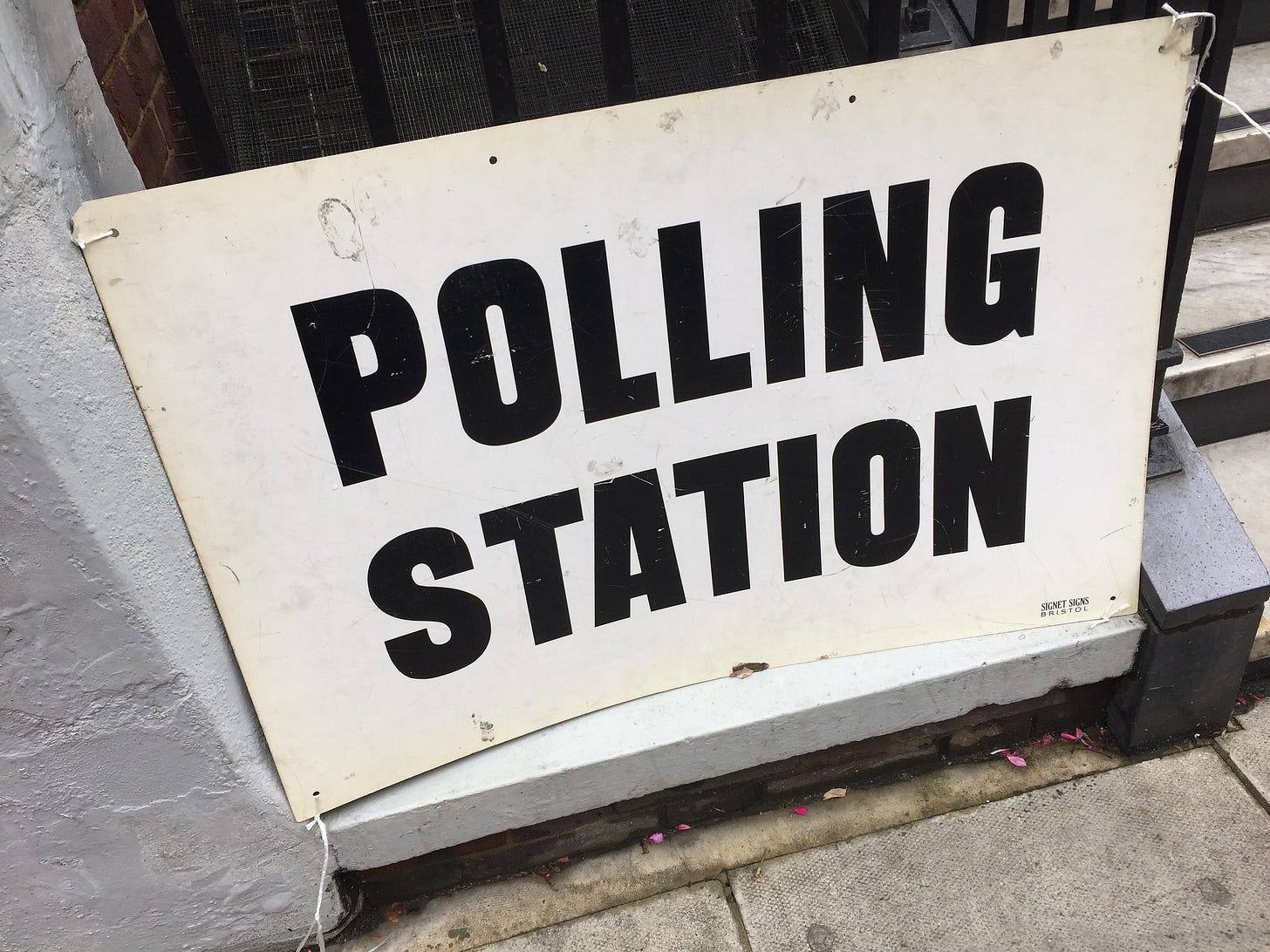A decade ago today, Britain went to the polls on the most exciting question for a generation. No, not on Brexit – it has been a mere five years since that referendum – but on the proposed Alternative Vote (AV) for electing MPs to the House of Commons.
The public vote on the voting system was one concession that the Liberal Democrats rung out of the Conservatives during coalition negotiations. Under its rules, voters would be asked to rank candidates by preference. If no candidate gained more than half of votes on the first round, the last placed candidate would be eliminated and second preferences accounted for. And so on, until somebody had a majority.
By coincidence, Londoners will elect their mayor tomorrow using a similar system, albeit with only two rounds. Sadiq Khan will win for Labour; the only doubt is whether he becomes the first London mayor to secure more than half the votes on the first pass.
I have previously ranted about this ridiculous election – perhaps a belated grieving stage after Rory Stewart, a former Conservative leadership candidate and possible ex-spy, dropped out of the race in 2020. The delaying of the election from last year to this had made his campaign unsustainable, he said.
One can talk at length on the merits of candidates, or even voting systems. But the advocates for devolution and electoral reform don’t usually grapple with a more fundamental question. How legitimate are the results of such ballots when so few voters bother to participate?

The two-thirds majority opposed to the AV system is often regarded as a thumping rebuke against it, as well as other proposals for more proportional systems of voting. In fact, a mere 42% voted at all. The real winner of the contest was ‘don’t care’.
‘Don’t care’ has an enviable record in local elections. Sadiq Khan won the 2016 London mayoral contest against a turnout of 45.3%. Andy Burnham, the Greater Manchester mayor, won his office in a contest that drew a mere 28.9% of eligible voters. Even the last Scottish parliamentary elections featured only 55.7% of potential electors.
One can overstate the voting gulf between local contests and general elections, which have recently enticed around two-thirds of voters. But for all the enthusiasm of political wonks, the evidence is that people don’t want more voting. Brenda from Bristol seemingly speaks for the nation.
Despite this, surveys suggest that British people think democracy is important in a general sense. One example from YouGov in December found that three-quarters think democracy works well as a way of governing a country, even if more were critical about how it functions in the UK.
One response is that the current setup deters people from participating. If only the system could be reformed to give genuine democracy, people would rush to the polls. But I’m sceptical. Even I find a lot of politics tedious, and I literally run a podcast about it.
My suspicion is that people mostly just want things to work. Those who try to become a climate change activist, join a free market think tank or run as a local councillor are a fringe. At the local level, which concerns itself with things like bin collection and social care, most questions are practical rather than ideological.
While many people love to slate faceless civil servants – or technocrats, in modern jargon – we are happy when they do things well. It is a valid democratic choice to not want to be consulted on every bit of policy, whatever the recent fervour for citizens’ assemblies.
This doesn’t mean that British governance isn’t a confusing hodgepodge that could well be tidied up. People need some base understanding of how things work to vote in an informed way, and simpler systems are usually clearer and more accountable. But when we next re-write the rules, we should pay some heed to the fact most people have better things to do than vote.
More local elections. Those insulted that anyone could suggest local elections are boring will find solace in the latest Right Dishonourable episode. Beginning with the London elections, we take a tour through Scotland, Hartlepool and a few other places. Maybe listen to it today, given the timing.
Centrist dads. In further podcasting news, me and my co-host joined the Centrist Dads to talk about the European Super League and Tory sleaze. My football knowledge being even more dubious than my political knowledge, this was an interesting venture.
Border patrol. I was tickled by a story of a Belgian farmer who moved a border marker between his country and France, prompting the BBC to report he had moved the border proper. Legally speaking this is untrue, but it does speak to a human fixation on physical boundaries, which have tended to limit the reach of authority in practice, whatever the theory.
It is customary to tell people to go out and vote, even if you suspect it only encourages them. Should you take an interest I would recommend you go to your polling station on Thursday. But abstaining is always an option.
Jimmy



